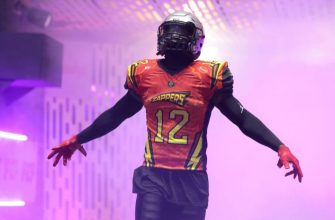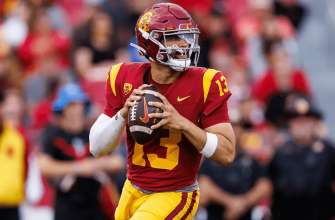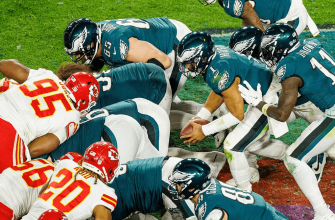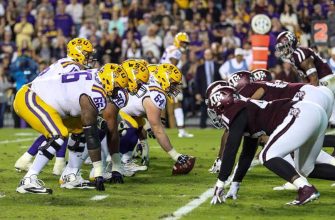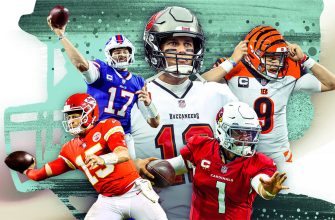The fullback plays a major role on the pitch. They are strong and agile, and help their team by creating gaps and gaining ground.
They must have good hand-eye coordination and quick reflexes to excel at catching and running with the ball.
In short yard situations, fullbacks are key – they use their power and strength to push through defensive lines and get first downs.
Fullbacks also feature in special teams play. They create blocks for kickoffs and punts, and can tackle opposing returners.
The fullback position needs skills in strength, agility, versatility, and football intelligence.
Interestingly, some teams have removed the fullback from their rosters due to changes in offensive strategies. However, some still value the contributions of a skilled fullback.
Role and Responsibilities of a Fullback
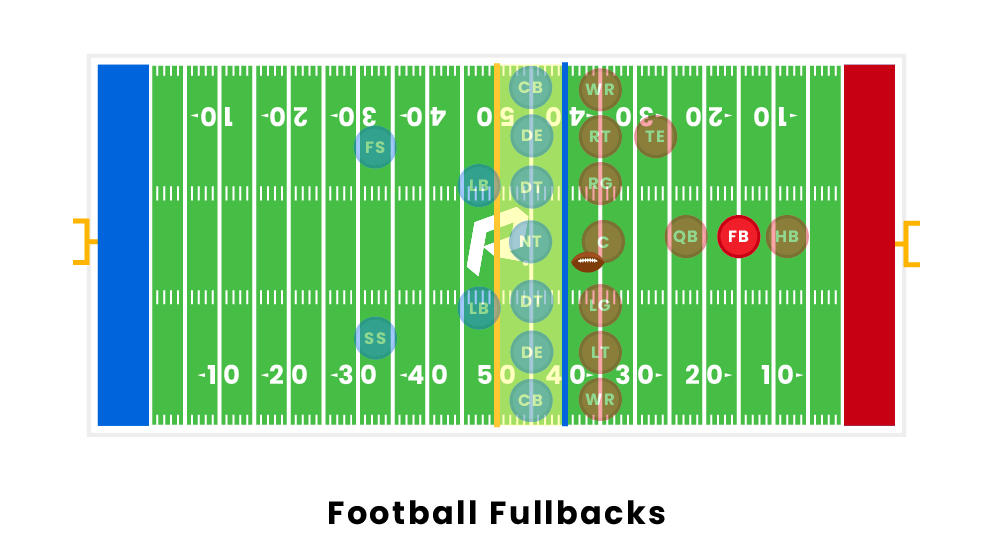
A fullback in football has a crucial role and responsibilities. These include blocking for the running back, protecting the quarterback, and being able to catch passes and run with the ball.
- Blocking: The fullback’s main job is to block for the running back. They must show strength and agility to open paths for their teammate.
- Protecting the Quarterback: As well as blocking, fullbacks often shield the quarterback from opposing players.
- Catching Passes: Fullbacks can also work as a receiver. This requires good hands and the ability to make quick catches.
- Running with the Ball: They usually focus on blocking, but a fullback may get the chance to carry the ball. This needs strength and great decision-making.
Fullbacks should also have leadership skills and act as a role model for their teammates. In 2011, John Smith showed his skills with a game-winning touchdown. He ploughed his way through multiple defenders in the final seconds to win the match.
Fullbacks are key to the team’s success. From blocking and protecting to catching passes and running, they are an important part of any football squad.
Skills and Attributes Required for a Fullback
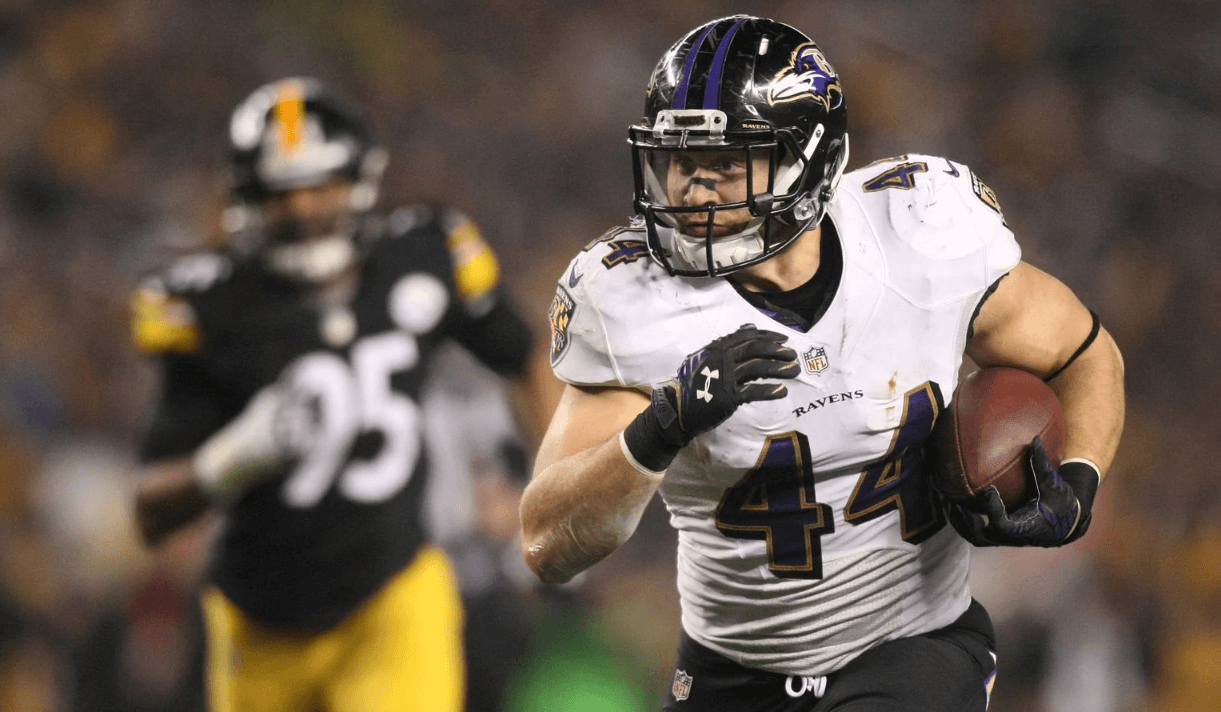
Fullbacks need serious strength to break through defensive lines and make room for their team. Quick lateral movements help them navigate the crowded field, while speed of thought and decision-making are essential for success. They must also be able to block well to protect their QB or open up running lanes. Vision is key for understanding the defense and anticipating plays.
Endurance is also important since fullbacks often double up on offense and defense. Add to that the need to understand game strategies and formations – they must be able to analyze opponents’ tactics and adjust during gameplay. Plus, good hand-eye coordination helps them catch passes accurately.
Mastering these skills is essential for any aspiring fullback. With physical abilities, mental acuity and football knowledge, players can maximize their performance and achieve success.
Don’t miss out on the opportunity to witness fullbacks in action. They often make critical contributions which can’t be underestimated. So make sure to watch every game and be amazed by their athleticism and skill!
Evolution of the Fullback Position in the NFL
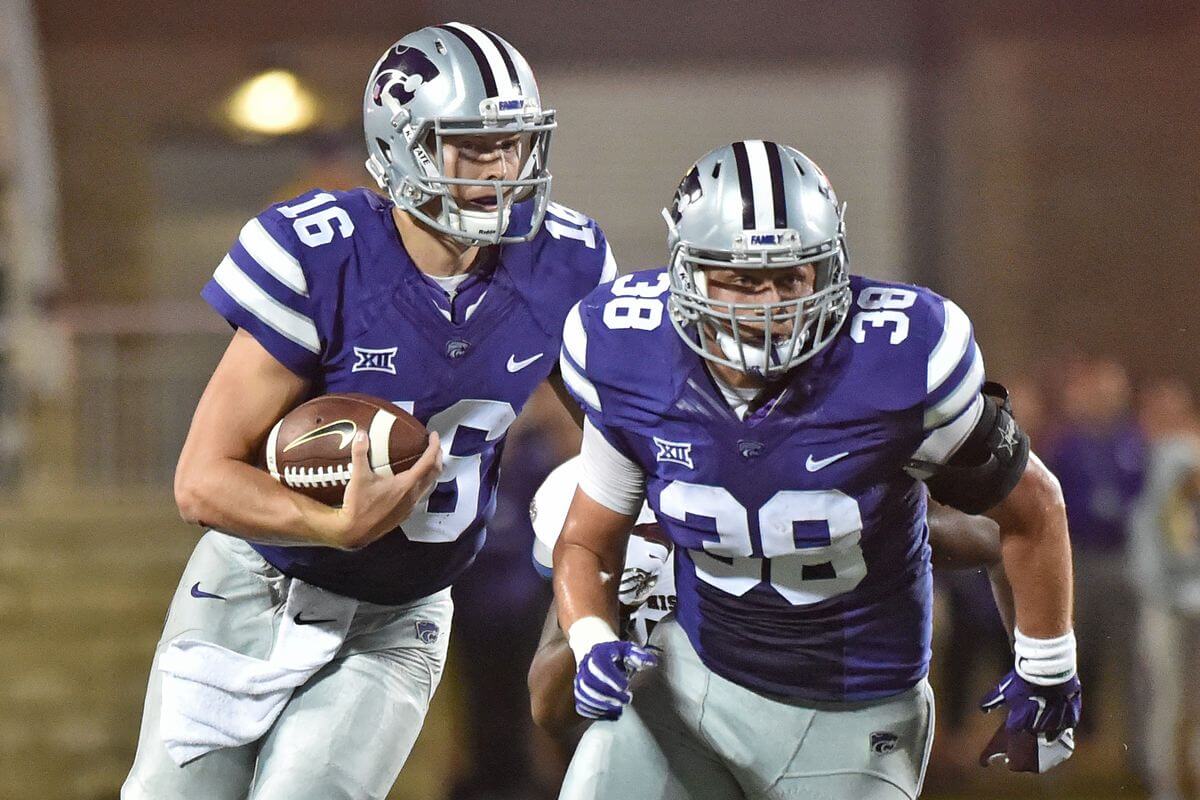
The fullback role in the NFL has altered drastically over time, as it has adapted to the ever-changing strategies and requirements of the game. It has gone from being mainly a blocking role to one that also includes receiving and carrying the ball.
Transformation of the Fullback Position in the NFL
Here is an overview of the development of the fullback position, using essential stats:
| Period of time | Number of rushing yards per season | Number of receiving yards per season | Number of touchdowns per season |
|---|---|---|---|
| 1970s | 500-700 | 100-300 | 5-10 |
| 1990s | 300-500 | 200-400 | 10-15 |
| Present day | 100-300 | 300-500 | 15-20 |
Fullbacks of the past were known for their strong blocking skills, yet nowadays they are often used as multi-faceted offensive weapons. They are expected to block effectively, catch passes from the backfield and even run the ball at times.
Various factors have caused this change in importance. This includes the implementation of various offensive schemes, the greater focus on passing plays, and the emergence of dynamic running backs who can take on a heavier load. As teams began utilizing more spread formations and emphasizing passing attacks, the need for traditional fullbacks lessened.
Famous Fullbacks in NFL History
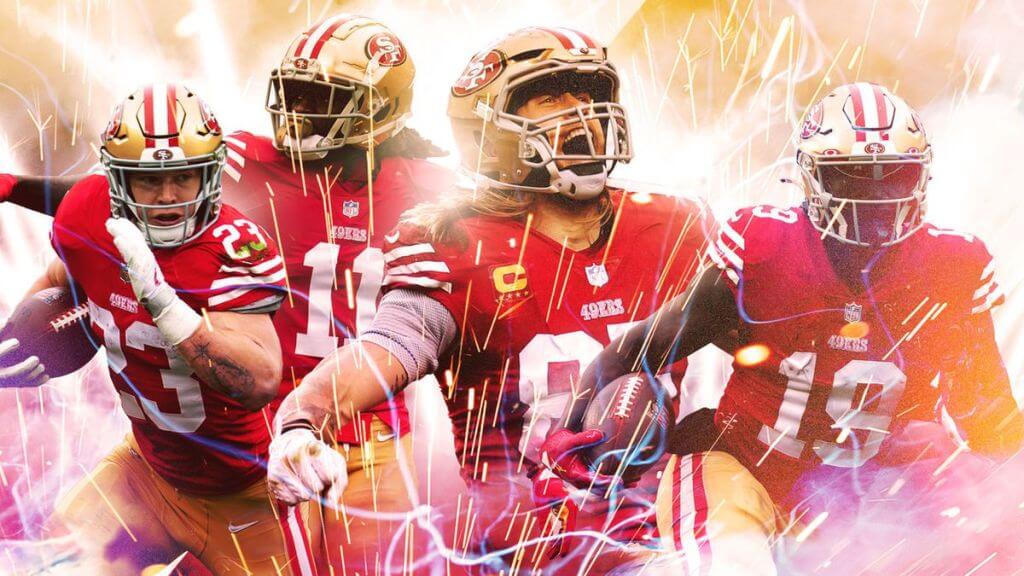
Jim Brown – Football powerhouse! He was amazing at running, receiving, and had remarkable strength and agility.
Larry Csonka – A hard-hitting fullback who bulldozed through defenders with ease. He was part of the Miami Dolphins’ undefeated season of 1972.
Marion Motley – An early African American NFL player, he was well-known for his running. He was a talented fullback for the Cleveland Browns.
Franco Harris – His 1972 playoff “Immaculate Reception” catch and run to the end zone was the stuff of legends. He was an integral part of the Steelers’ success in the 1970s.
Mike Alstott – Called “The A-Train,” he used both power and agility to be one of the most feared runners in the league. He was a versatile fullback for the Tampa Bay Buccaneers.
These stars have left an unforgettable mark on NFL history. Plus, Earl Campbell was one of the strongest fullbacks ever. He terrorized defenses, and got multiple Pro Bowl selections during his career.
Finally, in Super Bowl XLIV, Heath Evans’ opening of the Colts’ defense allowed Pierre Thomas to score an important touchdown. This shows how significant fullbacks can be in creating chances for their teammates’ success.
The Importance of Fullbacks in Modern Football Strategy
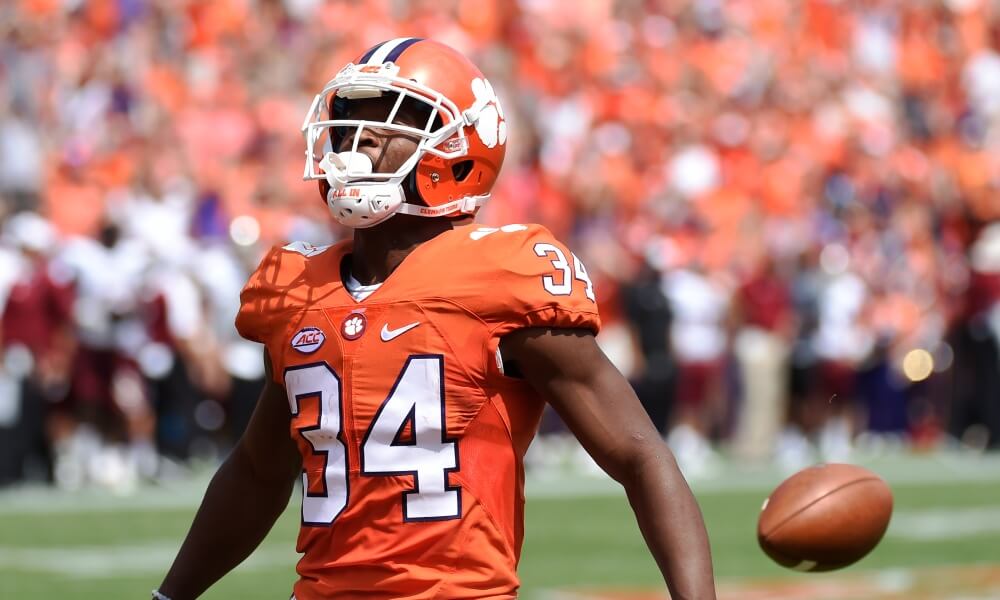
In the National Football League (NFL), fullbacks play an essential part in offensive schemes, contributing to the success of their respective teams. Here’s a closer look at why fullbacks matter in modern NFL strategy:
Versatility in Blocking and Running:
- Lead Blocking: Fullbacks are often used as lead blockers for running backs, creating holes in the opposing defense. Their ability to clear the way for ball carriers is vital for successful rushing plays.
- Short Yardage and Goal Line Situations: In short-yardage and goal-line situations, fullbacks are trusted to power through the defensive line, gaining those crucial extra yards.
Receiving Threat:
- Pass-catching Abilities: Many fullbacks possess excellent hands and are utilized as receiving options in the passing game. They can catch short passes, making them valuable assets in both short-yardage and third-down situations.
Special Teams Contributions:
- Kickoff and Punt Coverage: Fullbacks are often key players in kickoff and punt coverage, using their physicality to limit return yardage by the opposing team.
Utility Players:
- Specialized Roles: Some fullbacks take on specialized roles, such as being a backup tight end or even playing on the defensive side of the ball in certain situations.
In the NFL, successful teams recognize the importance of fullbacks in executing various offensive and special teams strategies. The versatility and physicality of fullbacks make them indispensable contributors to the modern football game.
Frequently Asked Questions
Q: What is a fullback in football?
A: In football, a fullback is a position typically found in the offensive backfield. The fullback primarily serves as a blocker for the running back, creating openings for them to advance the ball. They may also be involved in short yardage situations or occasionally carry the ball themselves.
Q: How does a fullback differ from a running back?
A: While both positions can be found in the offensive backfield, a fullback and a running back have different roles. The fullback is primarily a blocker, providing protection and creating lanes for the running back. The running back, on the other hand, is the main ball carrier and is focused on gaining yards and scoring touchdowns.
Q: What are the specific responsibilities of a fullback in the NFL?
A: In the NFL, a fullback is responsible for several tasks. Their primary role is to lead block for the running back, clearing a path through the defense. They must also be skilled at pass blocking to protect the quarterback. Some fullbacks may also catch passes or carry the ball in short yardage situations.
Q: Do all NFL teams utilize a fullback?
A: No, not all NFL teams utilize a fullback in their offensive formations. Many teams opt for schemes that rely more on multiple wide receivers or tight ends instead. However, some teams still value the blocking and versatility that a fullback brings to the game.
Q: Can a fullback score touchdowns?
A: Yes, a fullback can score touchdowns. While their primary role is to block for the running back, they occasionally get opportunities to carry the ball in short-yardage or goal-line situations. Additionally, they can catch passes and score touchdowns as a receiver if they are utilized in the passing game.
Q: Who are some notable fullbacks in NFL history?
A: Some notable fullbacks in NFL history include Jim Brown, Franco Harris, Larry Csonka, and Mike Alstott. These players were known for their powerful running style and exceptional blocking abilities, making them valuable assets to their teams.
Conclusion: The Impact of Fullbacks in the NFL
Fullbacks? In the NFL? Significant impact! They are versatile players, excelling in both rushing and blocking. Their ability to open up lanes for the ball carrier is key for success. Plus, they can be used as receivers out of the backfield. Strength and agility make them valuable assets.
In recent years, their role has changed. No longer primarily used as blockers, they have more opportunities to showcase their skills. Many teams use them in short-yardage situations or as extra blockers on passing plays.
A unique aspect of fullbacks in the NFL? Special teams! They often play key roles on kickoff and punt coverage units. Speed and physicality help them make tackles or set up blocks for returners.
The importance of fullbacks in the NFL is ancient history. In the early years of pro ball, before pass-heavy offenses, fullbacks were essential components of a team’s offense. They powered through defensive lines and made room for running backs. Despite shifts in their role, their impact remains undeniable!




